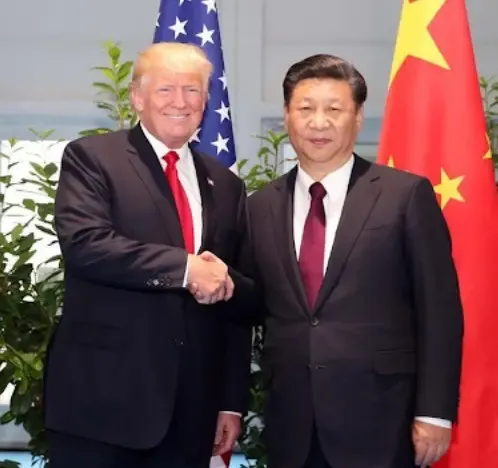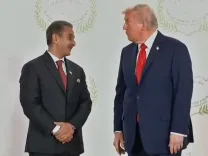Why Does China Call US' 100% Tariffs 'Double Standards'?

Synopsis
Key Takeaways
- China condemns US tariffs as 'double standards.'
- Export controls are at the center of escalating tensions.
- Disparities exist between US and Chinese export control lists.
- Potential cancellation of high-level diplomatic meetings looms.
- Global supply chains may face severe disruptions.
Beijing, Oct 12 (NationPress) On Sunday, China expressed strong disapproval towards the United States for its decision to impose 100 percent tariffs on Chinese products, characterizing Washington's actions as a manifestation of "double standards".
China affirmed it would adopt a "just and reasonable principled position" while continuing to implement export control measures in a "prudential and moderate manner".
This response follows US President Donald Trump's announcement on October 10 regarding additional tariffs that are set to take effect on November 1, in retaliation for what he termed China's "extraordinarily aggressive" new export limitations on rare-earth minerals.
Washington has also indicated the potential cancellation of a scheduled meeting between Chinese President Xi Jinping and President Trump later this month.
In a statement, China's Ministry of Commerce remarked, "On October 9, China released export control measures on rare earths and related items, which are normal actions taken by the Chinese government in accordance with laws and regulations to refine its own export control system."
"As a responsible major country, China always firmly safeguards its national security and international common security, always takes a just and reasonable principled position and implements export control measures in a prudential and moderate manner," it added.
Beijing accused Washington of escalating economic pressure on China since September.
"The US remarks reflect a textbook 'double standard'. For a long time, the US has been overstretching the concept of national security, abusing export control, taking discriminatory actions against China, and imposing unilateral long-arm jurisdiction measures on various products, including semiconductor equipment and chips," stated the ministry.
It also emphasized the differences between the two nations' export control systems, noting that the US Commerce Control List (CCL) includes over 3,000 items, while China's Export Control List of Dual-use Items features around 900.
"The US has long imposed the 'de minimis' rule for export controls, with a lowest threshold of 0 percent. These measures taken by the US side have seriously harmed the legitimate and lawful rights and interests of companies, severely disrupted the international economic and trade order, and gravely undermined the security and stability of global industrial and supply chains," it added.









